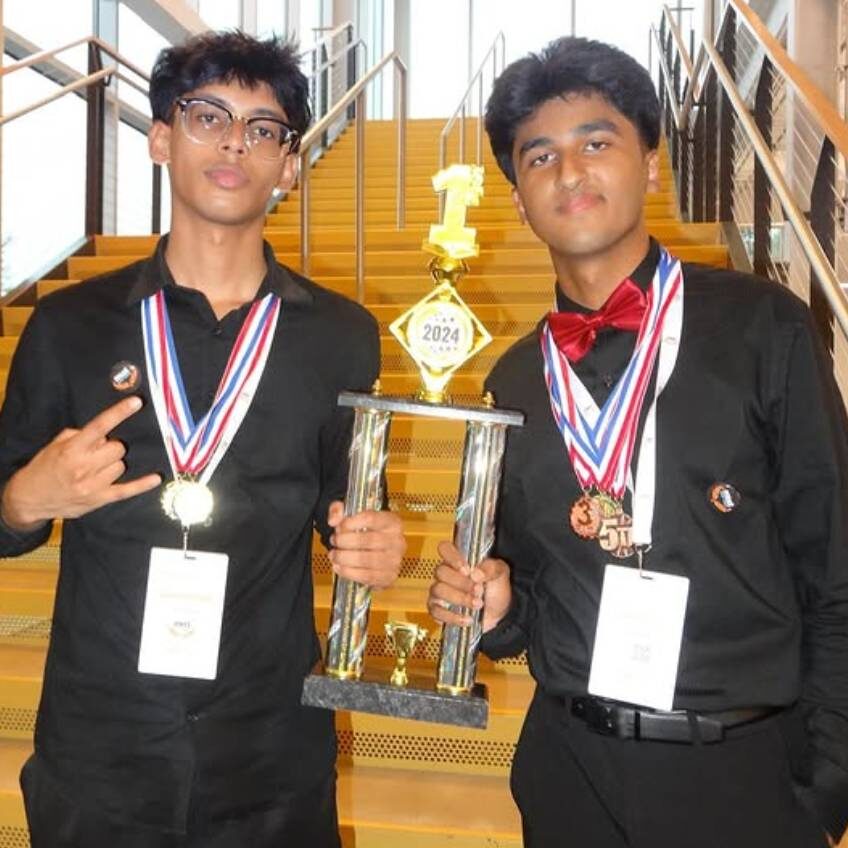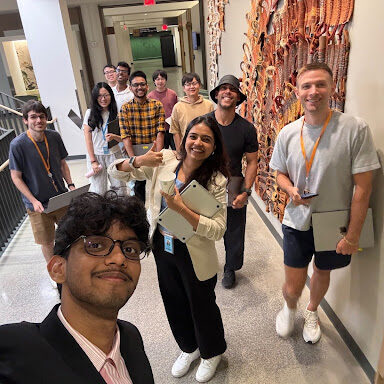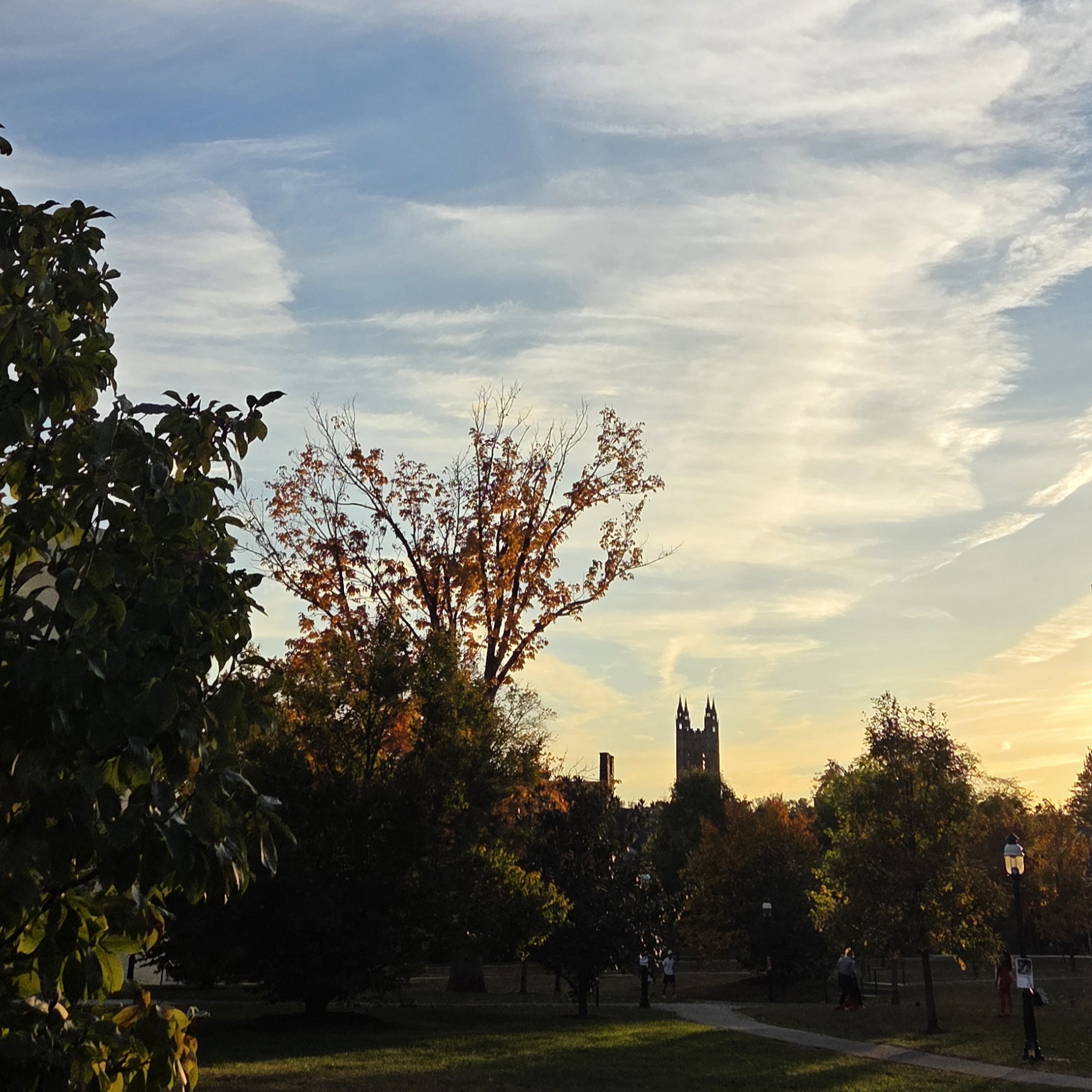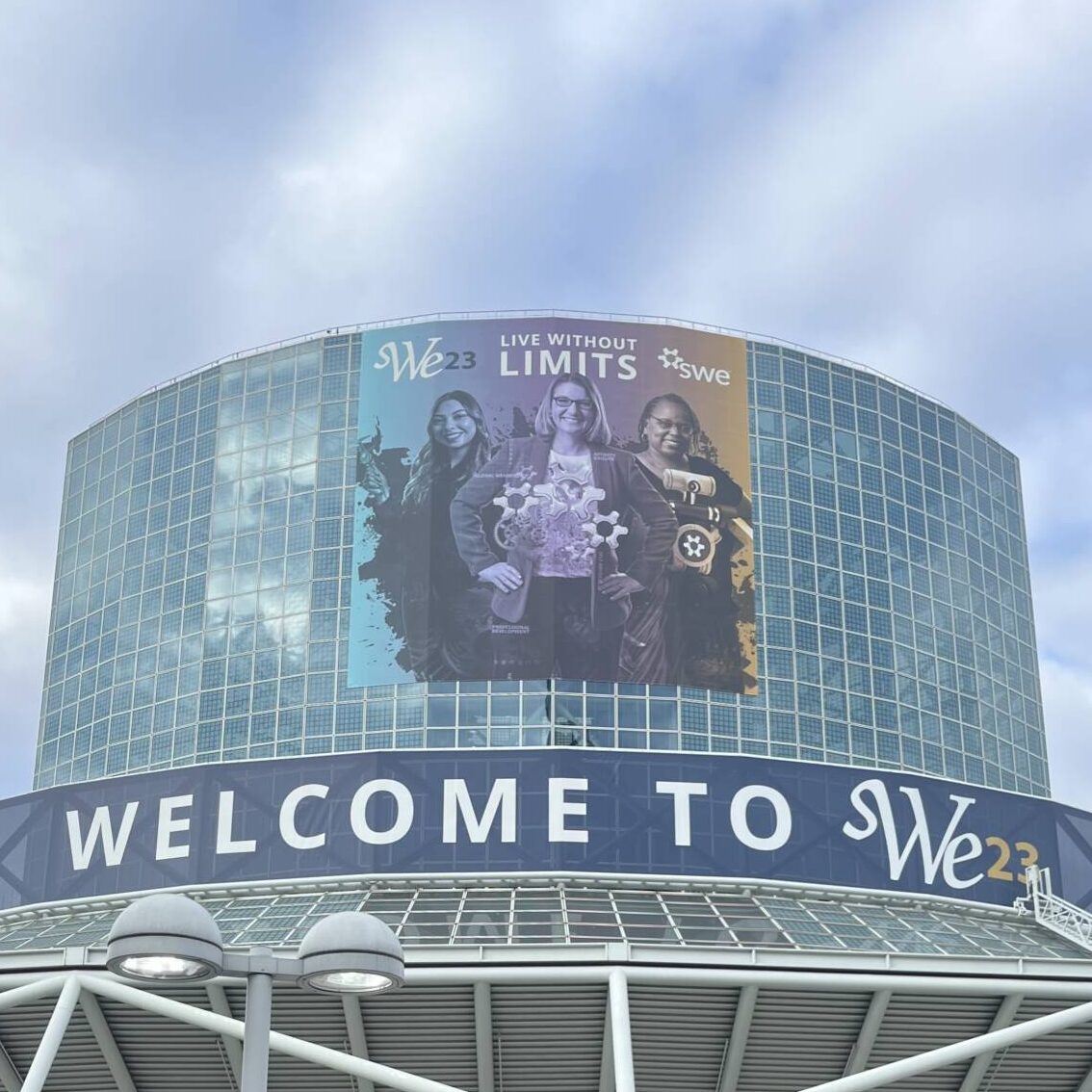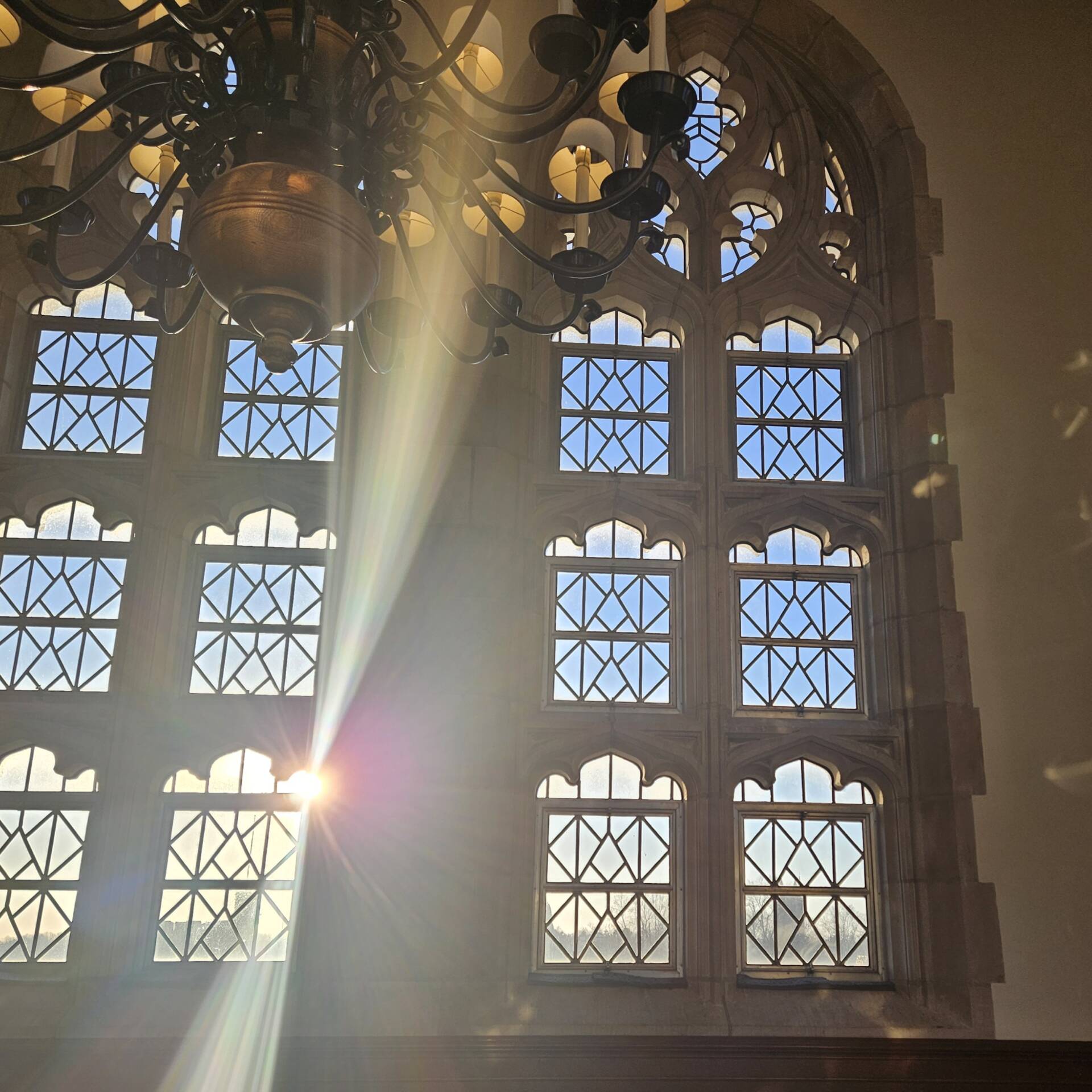As a first-year, Sadat Ahmed—now a sophomore majoring in Electrical and Computer Engineering—returned to a community that had shaped some of his most defining high school experiences. For Sadat, the Muslim Interscholastic Tournament (MIST) had always been more than a competition. It was where he discovered leadership, formed lasting friendships, and learned to believe in his own potential. Coming back as a Software Engineering Intern gave him the chance to reconnect with the program in a new and meaningful way.
Continue reading Returning to Roots: Sadat’s Summer at the Muslim Interscholastic Tournament6 Tips to Prepare for Independent Work Over Break
As another semester draws to a close and winter break looms, now is the perfect time to make a plan for independent work over break. The flexibility of break can give you the freedom to work on your own schedule, but it can also be challenging to keep making progress without the external structure of the semester. Here are a few things that I’m doing before leaving campus to help set me up for thesis writing over the break:
Continue reading 6 Tips to Prepare for Independent Work Over BreakScaling Solutions: Kyaw Naing’s Internship Journey at Amazon
This summer, Princeton sophomore Kyaw Naing returned to his hometown of New York City for a 12-week internship with Amazon’s Grocery Subscription team, an opportunity made possible through the Amazon Future Engineer (AFE) program. AFE is a highly competitive national initiative that aims to support students from underrepresented and underserved communities in STEM, offering college scholarships, mentorship, and paid internships at Amazon. Kyaw was one of only 400 students selected for the program. As an Electrical and Computer Engineering student from Queens, Kyaw saw the internship as a chance to push himself beyond the classroom. During his time with the Grocery Subscription team, he tackled real-world technical challenges at massive scales while working on services that millions of customers rely on every day.
The team owns the whole lifecycle of Grocery Subscription and focuses on building the Amazon Grocery Subscription, enabling customers to subscribe and order groceries. Work on the team involves significant research into sophisticated cloud infrastructure and pipelines and for Kyaw, this was the perfect environment to connect what he learned in his COS classes with real-world practice and research.
Continue reading Scaling Solutions: Kyaw Naing’s Internship Journey at AmazonRecommendations for Rec Letters
With my junior year well underway, I’ve started to do some thinking about everything that comes after you leave the “orange bubble”. As someone whose Princeton experience has been shaped by diverging interests, it’s exciting to imagine applying the unique skillsets I’m gaining to new contexts. Still, whether it’s internships, fellowships, or research projects, nearly every opportunity is guarded by an application process of some kind. While some applications can be relatively simple, many are decidedly complex. Of the many interlocking parts that make up any application process, letters of recommendation represent some of the most critical cogs in the machine. What makes letters of recommendation so important is that they can provide a new perspective on you as an applicant, affirm aspects of your application you’ve already shared, and more fully characterize you as a person. Still, asking for letters of recommendation can create uncertainty.
Continue reading Recommendations for Rec LettersDoha Diaries: Zara’s Internship at QCRI
This summer, Zara Hommez traveled from Princeton to Doha, Qatar, for an internship at the Qatar Computing Research Institute (QCRI), where she worked in the Humanitarian AI division. As a sophomore majoring in Operations Research and Financial Engineering (ORFE), she was drawn to the placement through Princeton’s International Internship Program (IIP) because it offered a rare blend of quantitative modeling, computer vision, and real-world impact, which is the exact intersection she hopes to pursue.
When browsing IIP opportunities, QCRI immediately stood out. Its mission to use data and AI to address global humanitarian challenges aligned perfectly with her academic interests in optimization, systems thinking, and applied machine learning. The chance to live in Doha, a rapidly growing, modern city at the heart of the Middle East, added an exciting cultural dimension she was eager to explore.
Continue reading Doha Diaries: Zara’s Internship at QCRIMaking the Most of Conferences
When I attended my first conference, I was overwhelmed by the number of events—from keynote speakers and lightning talks, to career fairs and research presentations. Over time, through attending several conferences, I learned how to navigate these spaces strategically and make the most of the few days I had at each one. Conferences are an opportunity to connect your academic interests to real-world communities and open doors for future opportunities. From resume databases to poster sessions, conferences can open doors to new research and career opportunities.
Continue reading Making the Most of ConferencesIn Defense of Core Lab
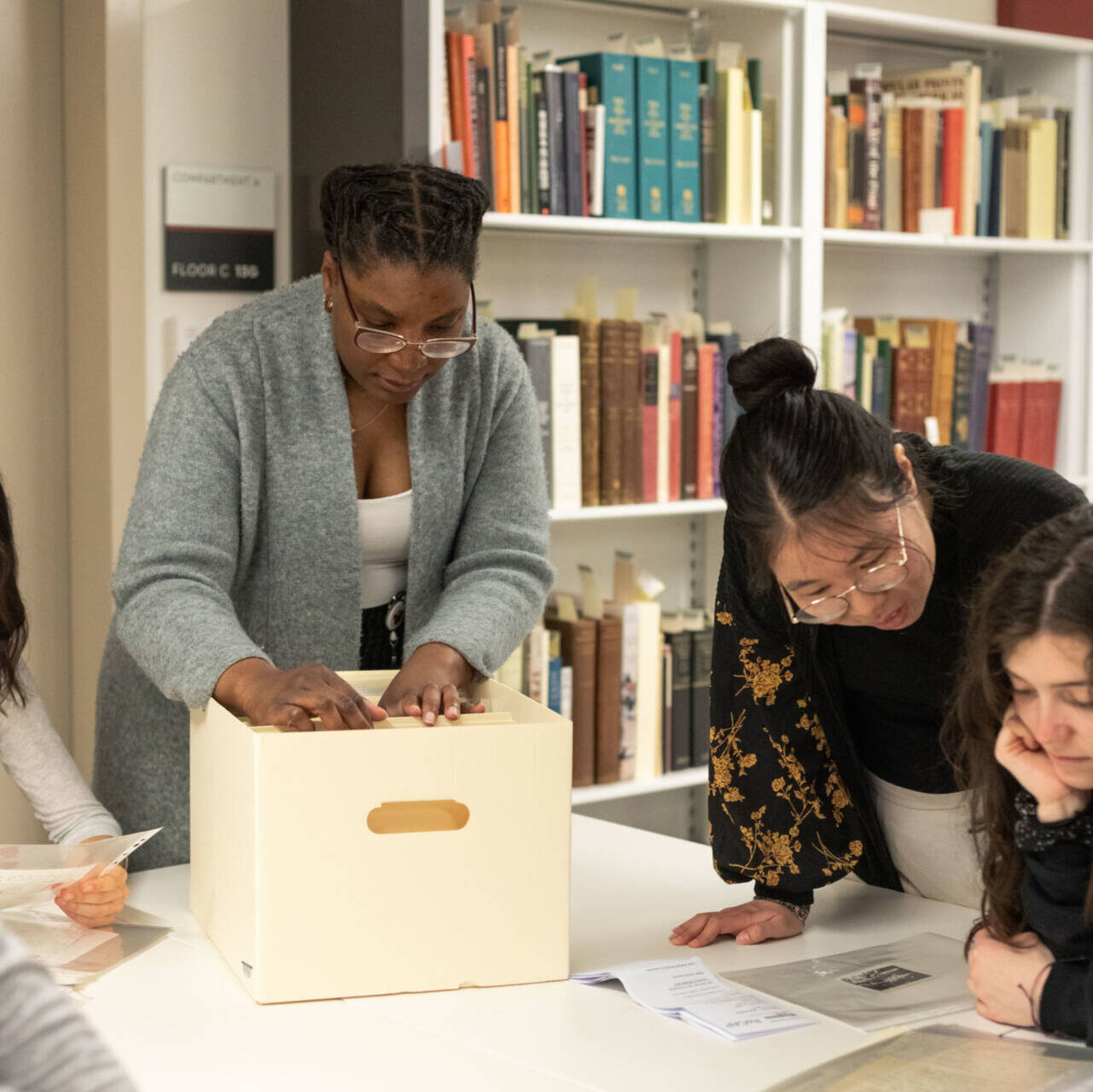
Many STEM majors here have the same rite of passage: core lab. For non-lab majors, core lab is a class that is purely to teach you about lab techniques and critical thinking skills that are useful for writing our theses. They usually involve a bit of a simulated lab experience where you discover new findings while the teachers guide you through the motions of a lab research experience.
Molecular biology’s core lab meets twice a week for 3 hours and then a small 50 minute lecture/precept on Fridays for half the semester. Other majors have similar constraints. However, while at first it may seem a bit overwhelming and even redundant if you’ve already done these procedures in a lab or are in a lab that definitely will not be using any procedures you learn, core lab goes beyond just teaching you technical skills.
I too was confused as to why I was here and why this mattered, but over time, I began to internalize one of the real skills this class is meant to teach you, something that pipetting will never give you: asking the right questions.
Continue reading In Defense of Core Lab“My Summer in Kuala Lumpur”: Iman’s Internship Journey
This summer, Iman Bedru ’28 traveled from Woodbury, Minnesota, to Kuala Lumpur, Malaysia, for an internship with Chumbaka, an organization dedicated to empowering youth through technology and education. As a rising sophomore in Electrical and Computer Engineering, Iman went to Malaysia through Princeton’s International Internship Program (IIP), drawn by the opportunity to connect her technical background with her passion for education and community engagement.
When browsing through IIP’s opportunities, Chumbaka stood out immediately. Its mission, which is to equip students and teachers with the tools to explore and innovate through STEM, aligned perfectly with Iman’s vision of using engineering knowledge to create meaningful social impact. The fact that the internship was based in Malaysia only added to the appeal. A country rich in cultural and ethnic diversity, Malaysia promised not just professional growth, but also immersion in a vibrant new environment.
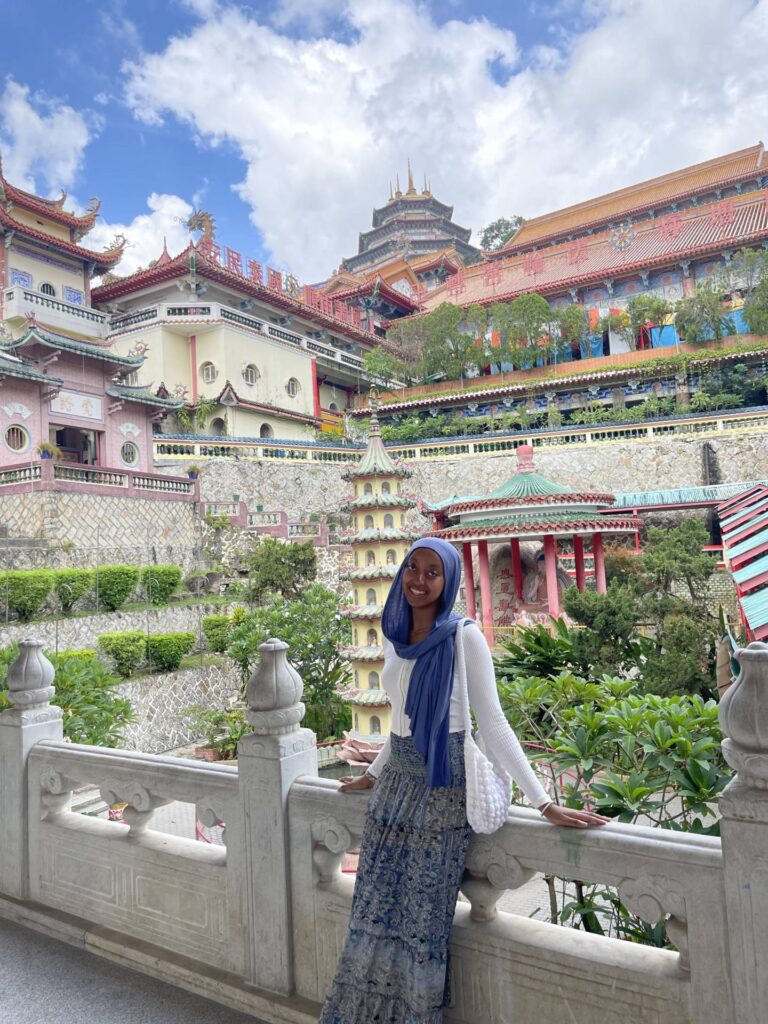
Research, Friends, Mountains, and Everything in Between
When I boarded my flight to Munich this summer, I thought I knew exactly what awaited me: labs buzzing with experiments and discoveries, even a big “Aha!” moment that would shape my research career. After spending over a month home in Thailand, beach hopping and exploring the underwater world with my scuba diving gear, I was ready to slip back into my academic shoes and make the most out of my time in a new country.
What I found was… not quite what I expected.
While I had overestimated how sparkly the research world would be, I didn’t even come close to imagining how many lessons I would learn or how many memories I would make.
Continue reading Research, Friends, Mountains, and Everything in BetweenEncounters with Mentorship
As I was graduating high school, everyone – whether it was friends, teachers, or family – told me I had to find a good mentor. I didn’t really know what this meant in the context of college. I had experienced instructive relationships with coaches and teachers before, but I didn’t really know how that would translate into a research-driven environment.
Now as a sophomore, I understand that especially before declaring a major, it can be challenging to forge mentorship connections. Still, during the first two years of my undergraduate experience, I have encountered mentorship in a variety of ways that I would have never expected. Whether it was through my lab-based courses, an internship, or even a recent serendipitous moment, quality mentorship has been a defining part of my Princeton experience.
Continue reading Encounters with Mentorship
